第44章
I have heard talk of the pleasures of idleness,yet it is my own firm belief that no one ever yet took pleasure in it.Mere idleness is the most disagreeable state of existence,and both mind and body are continually making efforts to escape from it.It has been said that idleness is the parent of mischief,which is very true;but mischief itself is merely an attempt to escape from the dreary vacuum of idleness.There are many tasks and occupations which a man is unwilling to perform,but let no one think that he is therefore in love with idleness;he turns to something which is more agreeable to his inclination,and doubtless more suited to his nature;but he is not in love with idleness.A boy may play the truant from school because he dislikes books and study;but,depend upon it,he intends doing something the while-to go fishing,or perhaps to take a walk;and who knows but that from such excursions both his mind and body may derive more benefit than from books and school?Many people go to sleep to escape from idleness;the Spaniards do;and,according to the French account,John Bull,the 'squire,hangs himself in the month of November;but the French,who are a very sensible people,attribute the action A UNE GRANDEENVIE DE SE DESENNUYER;he wishes to be doing something,say they,and having nothing better to do,he has recourse to the cord.
It was for want of something better to do that,shortly after my return home,I applied myself to the study of languages.By the acquisition of Irish,with the first elements of which I had become acquainted under the tuition of Murtagh,I had contracted a certain zest and inclination for the pursuit.Yet it is probable that had I been launched about this time into some agreeable career,that of arms for example,for which,being the son of a soldier,I had,as was natural,a sort of penchant,I might have thought nothing more of the acquisition of tongues of any kind;but,having nothing to do,I followed the only course suited to my genius which appeared open to me.
So it came to pass that one day,whilst wandering listlessly about the streets of the old town,I came to a small book-stall,and stopping,commenced turning over the books;I took up at least a dozen,and almost instantly flung them down.What were they to me?
At last,coming to a thick volume,I opened it,and after inspecting its contents for a few minutes,I paid for it what was demanded,and forthwith carried it home.
It was a tessaraglot grammar;a strange old book,printed somewhere in Holland,which pretended to be an easy guide to the acquirement of the French,Italian,Low Dutch,and English tongues,by means of which any one conversant in any one of these languages could make himself master of the other three.I turned my attention to the French and Italian.The old book was not of much value;I derived some benefit from it,however,and,conning it intensely,at the end of a few weeks obtained some insight into the structure of these two languages.At length I had learnt all that the book was capable of informing me,yet was still far from the goal to which it had promised to conduct me.'I wish I had a master!'I exclaimed;and the master was at hand.In an old court of the old town lived a certain elderly personage,perhaps sixty,or thereabouts;he was rather tall,and something of a robust make,with a countenance in which bluffness was singularly blended with vivacity and grimace;and with a complexion which would have been ruddy,but for a yellow hue which rather predominated.His dress consisted of a snuff-coloured coat and drab pantaloons,the former evidently seldom subjected to the annoyance of a brush,and the latter exhibiting here and there spots of something which,if not grease,bore a strong resemblance to it;add to these articles an immense frill,seldom of the purest white,but invariably of the finest French cambric,and you have some idea of his dress.He had rather a remarkable stoop,but his step was rapid and vigorous,and as he hurried along the streets,he would glance to the right and left with a pair of big eyes like plums,and on recognising any one would exalt a pair of grizzled eyebrows,and slightly kiss a tawny and ungloved hand.At certain hours of the day be might be seen entering the doors of female boarding-schools,generally with a book in his hand,and perhaps another just peering from the orifice of a capacious back pocket;and at a certain season of the year he might be seen,dressed in white,before the altar of a certain small popish chapel,chanting from the breviary in very intelligible Latin,or perhaps reading from the desk in utterly unintelligible English.Such was my preceptor in the French and Italian tongues.'Exul sacerdos;vone banished priest.I came into England twenty-five year ago,"my dear."'